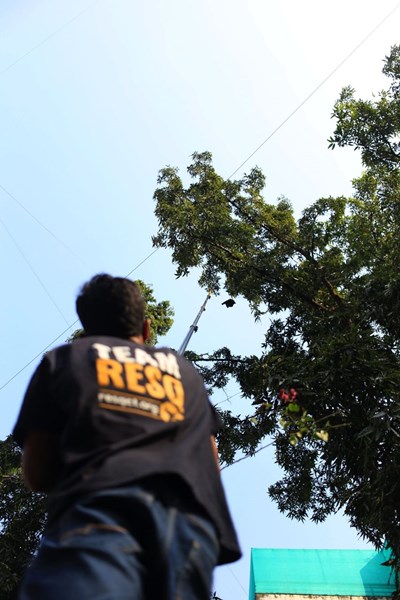WHO IS AN ANIMAL RESCUER?
RESCUE. It’s not just a verb, it’s a promise.
A promise that entails welfare of every animal not just via extrication from dangerous, unhealthy or fatal environments, but also via treatments of injuries and in the due course rehabilitation and release into a suitable habitat. It is a commitment willingly made by a human towards animals in distress across species, in order for them to be called an ‘Animal Rescuer’. Driven by the sole intention of reducing the suffering of an animal, fuelled by empathy and passion, and conducted using highest ethical practices, is the foundation on which an Animal Rescuer operates. Technically, tasks of a rescuer are categorised into four.
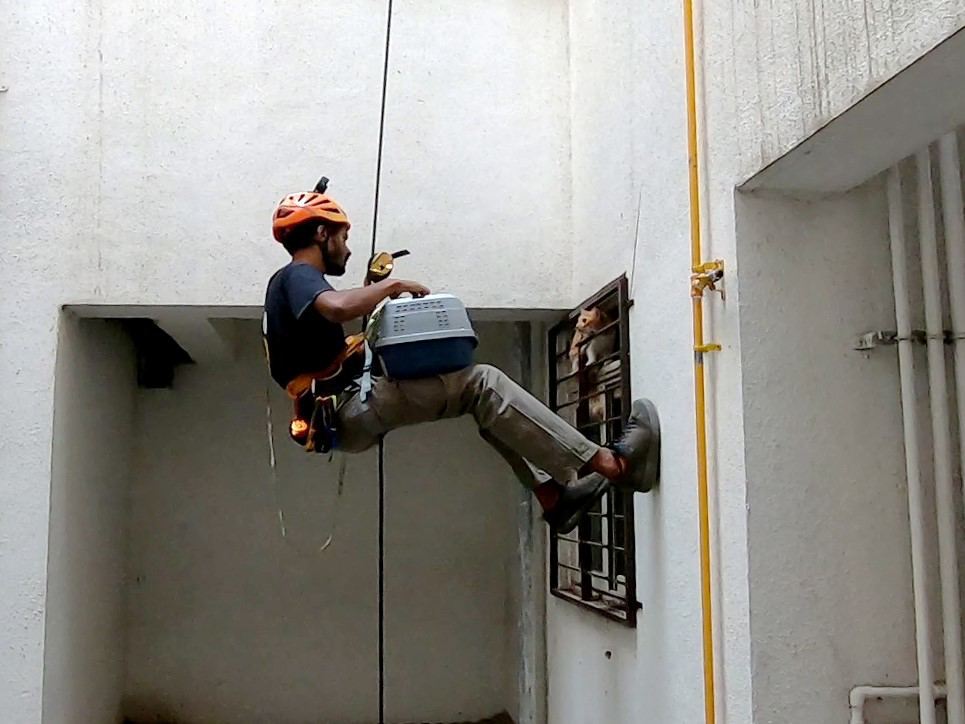
THE ROLES OF AN ANIMAL RESCUER
- RESCUE. The actual relieving of an animal by rescuing it and giving it first aid, further deciding if the animal can be released immediately or needs medical attention. And, in such cases, documenting and presenting the observations to the vet accurately to expedite the treatment and recovery.
- REHABILITATION. A significant part of a rescuer’s job, especially with wildlife, orphans, infants and native animals, who cannot always survive independently if released without bona fide planning. But, an enormous aspect of rehabilitation lies in instilling a sense of independence in the animal, by avoiding human imprinting and human interactions. That way, the animal learns to forage its own food and protect itself, eventually becoming ready to survive in its natural habitat.
- RELEASE. The release of rescued and rehabilitated animal also plays a massive role in the overall welfare of the animal. A rescuer must be invested in the release process, ensuring that the animal is set free in an environment where it can thrive. With domestic animals, fostering them until they find a forever home and training them for a happier future, also is a rescuer’s role.
- EDUCATION. Creating awareness amongst people through communication and education with regards to the animal characteristics, behaviour and rights, with a strong intention to reduce human-animal conflict.
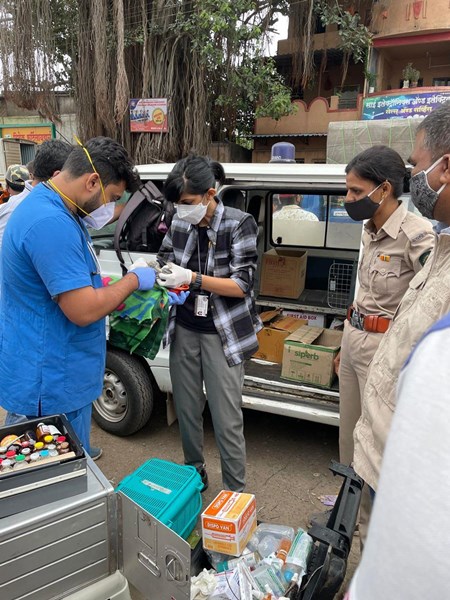
WHO CAN BECOME AN ANIMAL RESCUER?
ANYONE but not EVERYONE. ‘LOVE FOR ANIMALS’ may play a consequential role in someone's decision to become an animal rescuer. But is it enough?
The first question an individual must ask themselves is that “ Do I have the ability to be practical and passionate in equal measure?” Often a lack on either side often leads to poor outcomes for the animal rescuer, for the community that lives around animals and very often poor welfare for the animal itself.
It is important for a rescuer to accept that he or she is going to be subject to witnessing life and death and everything in between, on a daily basis. To watch and handle a healthy animal is congenial and invigorating. But to witness animals (adults, and/or infants) in their most vulnerable and agonising states, with grave physical trauma injuries and hostility towards any comforting, due to major accidents or gruesome torture against them and in some cases even untimely deaths, are regular sights in the life of an animal rescuer. To be able to stomach such situations and act swiftly is the basic attribute needed to be an animal rescuer.
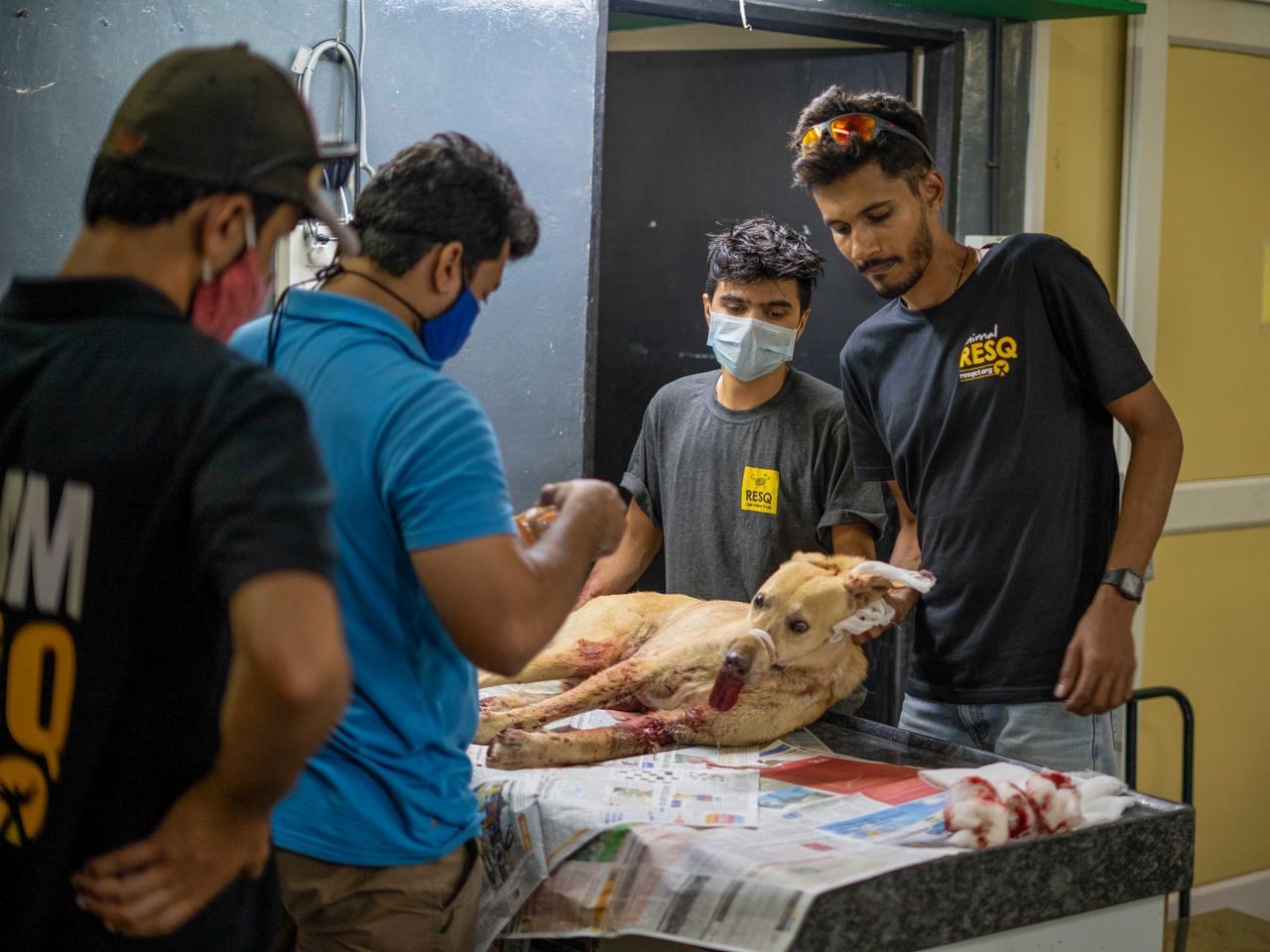
No two rescues or animals are the same, coupling knowledge with presence of mind and the ability to quickly strategise is key to increase the likelihood of a positive outcome. It takes generous portions of courage, empathy, presence of mind, patience and knowledge to conduct a safe rescue, rehabilitation and release. Now add some spontaneity, passion, street smartness and honesty with a lavish dash of adventure, logic and rationality. The potion that comes to be, is what runs through the veins of Animal Rescuers. And even though the work of an animal rescuer may be fuelled by their understanding of animals and animal behaviour, it is not completely defined by it. In many cases, if not most, why an animal needs rescuing is because it is stuck amidst a human-animal conflict. To mediate a situation like that, while keeping the best interests of the animal in mind and ensuring all stakeholders involved in the conflict are benefited, requires the art of people management which is just as necessary. As is, the ability to analyse a situation in times of extreme distress.
WHAT IS THE ESSENCE OF AN ANIMAL RESCUER?
To seek precision over perfection, because every rescue situation is unpredictable and sporadic. To elaborate further, here are a few things etched on the soul of an efficient Animal Rescuer.
To always do what is best for the animal, firstly by addressing the tribulation and torment of the animal in question, followed by handling the hostility of the animal and treating its post trauma discomfort such as dehydration and starvation. In cases of extreme complexities, to make logical decisions by remaining calm, composed and determined. Knowledge, Information, discipline, preparedness and fitness (both mental and physical), determine the efficiency of an animal rescuer. Upgrading expertise on various species with regards to their behaviour, characteristics etc. while referring to all the relevant data and information, make for splendid case studies, simplifying the analysis during rescue operations.
Also, the core of everything an animal rescuer does is RESILIENCE. As Winston Churchill said, “Success is not final. Failure is not fatal. It is the courage to continue that counts”. To overcome any complication arising during a rescue, or rehabilitation or release of an animal, and to channelise resources towards determining better fate of the animal, defines resilience for an animal rescuer.
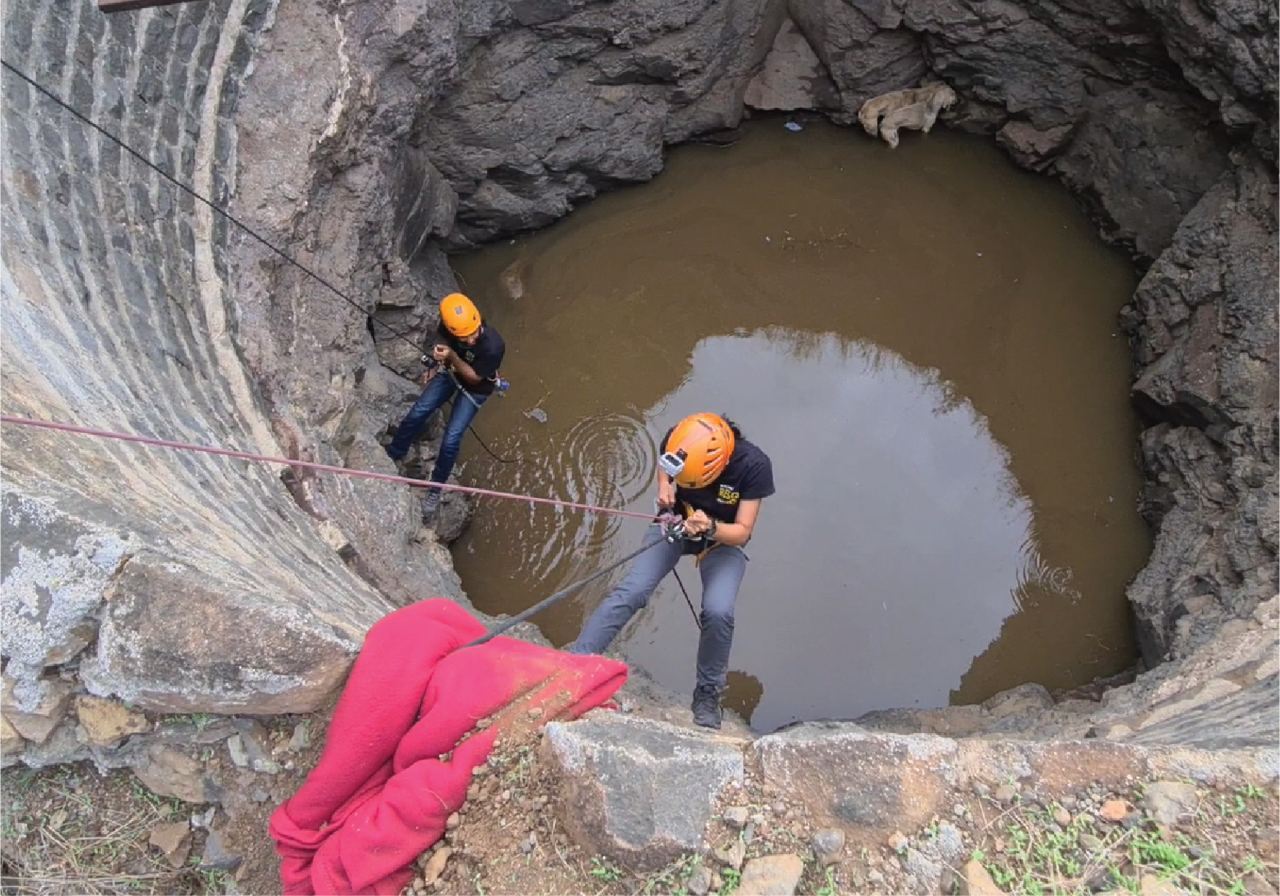
ETHICS OF AN ANIMAL RESCUER.
“Ethics is knowing the difference between what you have a right to do and what is right to do”- Potter Stewart. And nothing explains that better - the liberty of an animal rescuer which must always must be exercised using the moral compass.
To begin with, an animal rescuer must always give utmost importance to safety, that of their own first, followed by all the stakeholders in the rescue situation. Once the safety measures are assured, a rescuer must feel obligated to do everything in their capacity to determine better providence of the animal in question. Honest efforts and moral correctness play a pivotal role in governing the conduct of a rescuer. In some cases, especially with wildlife, it becomes very tempting for all the stakeholders involved, to handle the rescued animal for purposes such as photography and assessment. However, an efficient rescuer must circumvent this for the safety of the animal. Also, what can be alluring sometimes for a person who is an ‘animal lover' is to hoard an animal as a pet or to hoard a part of the deceased animal as a memento, both of which are unacceptable on every scale of morality. Comprehending the conservation status of animals and their significance in the surroundings, also plays a major role in decision making and evaluation for a rescuer, and an uncompromising aspect of their ethics. Lastly, but just as significantly, to respect every animal across species sans any discrimination while undertaking a rescue operation, defines wholly the moral objective of a good animal rescuer.
Often touted as purely an act of selflessness, animal rescue can be a one-off random act of kindness for some or a sporadic voluntarily activity for a few. But for some, who do it on a daily basis it is beyond an act that provides satisfaction or an uplighting feeling of selflessness, as those feelings are fleeting.
Being an animal rescuer is a high pressure job and one to be chosen consciously - in order to salvage animals coming into conflict that is brought on by this developing world, to ensure welfare of an animal while upholding the best possible practices and ethics and one where you are willing to work hard on yourself every single day, to stay physically and mentally strong in meeting the challenges presented in aiding human-animal conflicts that come your way!
